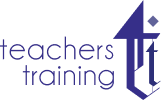
Your Future Starts Here with Regulated Qualifications
Regulated Courses

What is a Qualification?
Regulated Qualifications:
What Are They?


Why Are Regulated Qualifications Important for Teachers?
Who Offers Them?

Why Take a Regulated Qualification?

How Can I Use My Qualification?

Awarding Bodies: Who They Are and What They Do

Our Regulated Qualifications are Awarded by Focus Awards
Their commitment to excellence ensures that both learners and training providers benefit from top-tier service, guidance, and support. By choosing Focus Awards, you can trust that your qualification is recognised and valued, equipping you for professional success.
What Qualification Levels Mean

Qualification Levels in England, Wales, and Northern Ireland
Entry level qualifications help learners get a foundation in a subject. They’re perfect for those just starting out, and there are three sub-levels (1, 2, and 3), with Entry Level 3 being the most advanced.
Examples of Entry Level qualifications:
Entry Level Award
Entry Level Certificate (ELC)
Entry Level Diploma
Entry Level ESOL (English for Speakers of Other Languages)
Functional Skills
At this stage, learners gain practical knowledge and skills that can be applied to further study or entry-level jobs. Think of it as the next step up from entry-level learning.
Examples of Level 1 qualifications:
GCSE (grades 3, 2, 1 or D-G)
Level 1 Award/Certificate/Diploma
Level 1 NVQ (National Vocational Qualification)
Music Grades 1-3
This level represents a deeper understanding of more complex topics. Learners typically achieve GCSEs at higher grades or start preparing for more advanced studies.
Examples of Level 2 qualifications:
GCSE (grades 9-4 or A*-C)
Level 2 NVQ
Intermediate Apprenticeship
Music Grades 4-5
O Level (grades A-C)
If you’re aiming for higher education or advanced job roles, Level 3 qualifications are key. They offer in-depth knowledge and can lead to university entry or advanced apprenticeships.
Examples of Level 3 qualifications:
A Levels
Advanced Apprenticeships
Level 3 Diploma/Certificate
T Levels
International Baccalaureate
Music Grades 6-8
Level 4 qualifications prepare you for specialised job roles or further study. This is where higher education begins, and learners can build on their skills for technical or managerial roles.
Examples of Level 4 qualifications:
Higher National Certificate (HNC)
Higher Apprenticeship
Level 4 NVQ
Certificate of Higher Education (CertHE)
Level 5 offers a strong balance between theoretical and practical learning. It’s ideal for those looking to work in professional or technical roles or continue their studies.
Examples of Level 5 qualifications:
Foundation Degree
Higher National Diploma (HND)
Level 5 NVQ
Diploma of Higher Education (DipHE)
This is the level where you achieve a full degree. It’s designed for those pursuing careers in specialised fields, from teaching to engineering.
Examples of Level 6 qualifications:
Bachelor’s Degree (BA/BSc Hons)
Degree Apprenticeship
Level 6 NVQ
Graduate Diploma/Certificate
At Level 7, you’re mastering your field. These qualifications are typically postgraduate, providing expert knowledge and advanced skills for leadership or research roles.
Examples of Level 7 qualifications:
Master’s Degree (MA, MSc)
Postgraduate Certificate/Diploma
Level 7 NVQ
Integrated Master’s Degree (MEng)
The pinnacle of learning, Level 8 represents doctorate-level studies. This level is for those conducting original research or leading innovation in their field.
Examples of Level 8 qualifications:
Doctorate (PhD or DPhil)
Level 8 NVQ
Level 8 Diploma
Frequently Asked Questions (FAQs)
Regulated qualifications are credentials that have been approved by a government-recognised body, ensuring they meet specific standards of quality and relevance. These qualifications are essential for demonstrating your skills and knowledge in various fields.
Regulated courses are those that are accredited and recognized by official bodies such as awarding organizations or government agencies. These courses follow strict standards to ensure quality and consistency in their content, delivery, and assessment. Completing a regulated course results in a formal qualification that is widely accepted by employers, industry professionals, and regulatory bodies. Regulated courses are often required for careers in specific professions, offering clear pathways to career advancement and recognition.
Unregulated courses, in contrast, are not subject to accreditation or official oversight. While they can still provide valuable knowledge, they lack the formal recognition that regulated courses offer. Unregulated courses may be useful for personal development or niche learning but do not carry the same weight when it comes to career progression or professional recognition.
Why should I choose a regulated course?
Choosing a regulated course provides several advantages. Regulated qualifications are recognized by employers and industry bodies, giving you a competitive edge in the job market. These courses ensure that you meet the specific requirements needed for professional roles, increasing your chances of career advancement. Additionally, regulated courses often lead to certifications that are legally recognized, offering greater security and credibility in your qualifications.
Are regulated courses more expensive than unregulated ones?
Regulated courses are typically more expensive than unregulated ones due to the rigorous standards they must meet, the accreditation process, and the formal assessments involved. However, the investment is often worth it, as regulated qualifications open doors to more career opportunities and are recognized in your industry. The long-term benefits, such as higher earning potential and job security, often outweigh the initial cost.
Can unregulated courses lead to job opportunities?
While unregulated courses can provide useful skills and knowledge, they may not be recognized by employers or regulatory bodies. For roles that require formal qualifications or industry-recognized certifications, regulated courses are the better choice. Regulated qualifications ensure that your skills are formally acknowledged, increasing your chances of landing a job or advancing in your career.
Are regulated courses more reliable?
Yes, regulated courses are more reliable because they are governed by strict guidelines and standards set by accrediting bodies. This ensures that the quality of the course content, teaching, and assessment methods are consistently high, which is not always guaranteed with unregulated courses. By choosing a regulated course, you can be confident that you are receiving an education that meets industry standards.
An Ofqual regulated qualification is a course or certification that is overseen and approved by the Office of Qualifications and Examinations Regulation (Ofqual) in the UK. Ofqual ensures that qualifications meet high standards of quality, fairness, and reliability. These qualifications are part of the Regulated Qualifications Framework (RQF), which categorizes courses based on their difficulty level and the amount of learning required. Completing an Ofqual regulated qualification guarantees that the course content, assessments, and certification are recognized by employers, educational institutions, and government bodies.
Our regulated qualifications are awarded by Focus Awards, a nationally recognised awarding organisation regulated by Ofqual, CEA in Northern Ireland, and Qualifications Wales.
We offer a wide range of qualifications across all levels, from Entry Level to Level 8. Each level corresponds to a specific standard of education and skill, allowing learners to progress through their learning journey.
Having a regulated qualification enhances your employability by providing a recognised credential that employers value. It demonstrates your commitment to professional development and can open doors to further education and career advancement.
Selecting the right qualification depends on your career goals, current skills, and the level of education you wish to pursue. Our team at The Teachers Training can provide guidance to help you make an informed decision.
Yes! We offer a variety of qualifications that can be completed online, providing you with the flexibility to learn at your own pace and convenience.
The duration varies depending on the specific qualification and level. Some qualifications may take a few weeks, while others could take several months. Check the details of each course for specific timeframes.
We offer comprehensive support throughout your learning journey, including access to tutors, guidance on course materials, and assistance with assessments to ensure you have the resources you need to succeed.
While funding options may vary, we encourage you to explore potential financial aid, grants, or employer sponsorships that may be available to support your studies.
To begin your journey towards a regulated qualification, browse our course offerings on The Teachers Training website and contact us for any questions or to enrol in a program.
Latest Blogs
Discover expert tips, guidance, and the latest industry trends in teaching and education through our blogs.
October 10, 2024
Level 5 DET vs. DIT: Key Differences Explained for Aspiring Teachers
Table of Contents Thinking about a career in further education teaching? That’s fantastic! But before...
Learn MoreOctober 8, 2024
Level 3 Award in Education and Training: What Can I Do With This Qualification?
Table of Contents If you’re looking to jumpstart a career in teaching or training, the...
Learn MoreSeptember 2, 2024
Advance Your Career in Education: Becoming a Higher Level Teaching Assistant (HLTA)
The UK education landscape is facing unprecedented challenges. According to the Department for Education’s Spring...
Learn MoreJuly 28, 2024
How to Become an NVQ Assessor?
How to Become an NVQ Assessor: Qualifications, Challenges & Career Outlook Are you passionate about...
Learn MoreJune 24, 2024
QTS or QTLS? A Guide to UK Teaching Qualifications and Career Paths
So you’ve decided to become a teacher in the UK – that’s fantastic! But before...
Learn MoreApril 22, 2024
What is the Difference Between TA and HLTA?
Teaching assistants (TAs) play a crucial role in classrooms, but for those seeking to expand...
Learn MoreApril 18, 2024
How to Get Qualified Teacher Status (QTS) Certification in the UK
Are you aspiring to become a teacher in the UK? If so, then obtaining Qualified...
Learn More
















